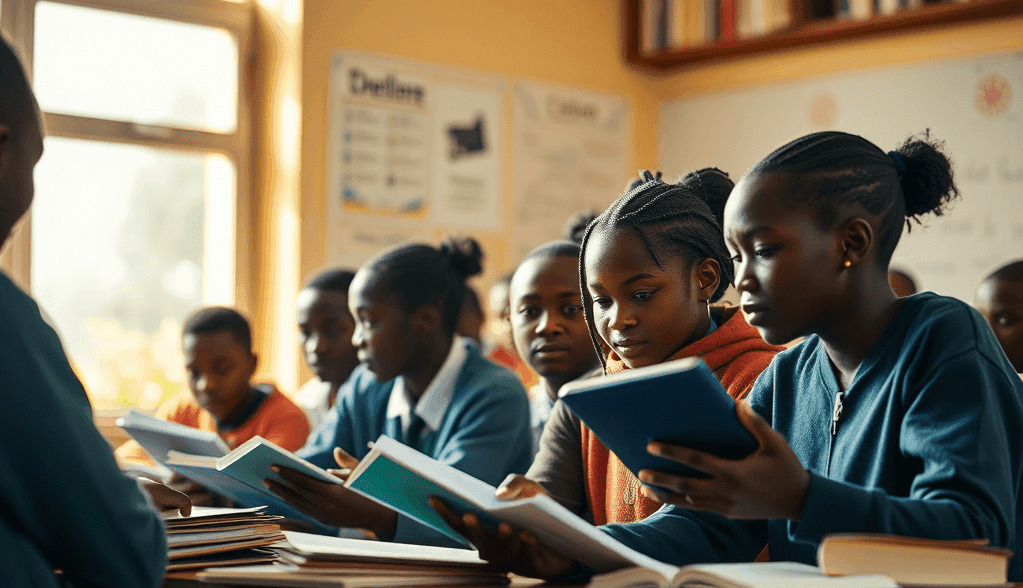1.0 Social Studies and Career Development
- 1.1 Pathway Choices: This sub-strand likely explores various career paths, helping students understand different professions, their requirements, and how to make informed choices about their future.
- 1.2 Pre-career Support Systems: This sub-strand might focus on the resources and guidance available to support students in their career exploration and development. This could include information on career counseling, internships, mentorship programs, and job shadowing opportunities.
2.0 Community Service-Learning
- 2.1 Community Service-Learning Project: This sub-strand emphasizes hands-on community engagement through projects. Students might participate in activities like volunteering at local organizations, conducting community needs assessments, and implementing solutions to identified problems.
3.0 People and Relationships
- 3.1 Socio-Economic Practices of Early Humans: This sub-strand likely delves into how early human societies organized themselves economically and socially. Topics might include hunting and gathering, early forms of agriculture, barter systems, and the development of social structures.
- 3.2 Indigenous Knowledge Systems in African Societies: This sub-strand focuses on the traditional knowledge and practices of African communities. It may cover topics like traditional medicine, astronomy, agriculture, and environmental management.
- 3.3 Poverty Reduction: This sub-strand explores the causes and consequences of poverty and examines strategies for poverty reduction. It might discuss issues like income inequality, access to education and healthcare, and sustainable development.
- 3.4 Population Structure: This sub-strand likely deals with the composition and dynamics of human populations. Topics might include population growth, age structure, migration patterns, and the impact of population changes on society and the environment.
- 3.5 Peaceful Conflict Resolution: This sub-strand focuses on non-violent approaches to resolving conflicts. It might cover topics like negotiation, mediation, dialogue, and restorative justice.
- 3.6 Healthy Relationships: This sub-strand likely explores the importance of positive relationships and how to build and maintain them. It might cover topics like communication skills, empathy, respect, and conflict resolution within families, friendships, and communities.

4.0 Natural and Historic Built Environments
- 4.1 Topographical maps: This sub-strand introduces students to the use of maps to understand and interpret the physical landscape. It might cover topics like map reading skills, contour lines, elevation, and the use of maps for navigation and planning.
- 4.2 Internal Land Forming Processes: This sub-strand explores the natural processes that shape the Earth’s surface, such as weathering, erosion, deposition, and plate tectonics.
- 4.3 Multipurpose River Projects in Africa: This sub-strand likely focuses on the development and management of river systems in Africa for various purposes, such as irrigation, hydroelectric power generation, transportation, and flood control.
- 4.4 Management and Conservation of the Environment: This sub-strand explores the principles of environmental management and conservation. It might cover topics like pollution control, waste management, biodiversity conservation, and sustainable resource use.
- 4.5 World Heritage Sites in Africa: This sub-strand likely introduces students to significant cultural and natural sites in Africa that have been designated as World Heritage Sites by UNESCO. It might explore the historical, cultural, and environmental significance of these sites.
5.0 Political Developments and Governance
- 5.1 The Constitution of Kenya: This sub-strand focuses on the fundamental laws and principles that govern Kenya. It might cover topics like the rights and responsibilities of citizens, the structure of government, and the rule of law.
- 5.2 Civic Engagement in Governance: This sub-strand explores the various ways citizens can participate in the political process. It might cover topics like voting, elections, public protests, and advocacy.
- 5.3 Kenya’s Bill of Rights: This sub-strand focuses on the fundamental human rights guaranteed to all citizens of Kenya under the Constitution.
- 5.4 Cultural Globalisation: This sub-strand explores the increasing interconnectedness of cultures around the world due to factors like globalization, technology, and migration. It might discuss the impact of cultural exchange on local cultures and identities.
Related Products
Discover more from ELIMU ASSISTANT
Subscribe to get the latest posts sent to your email.

